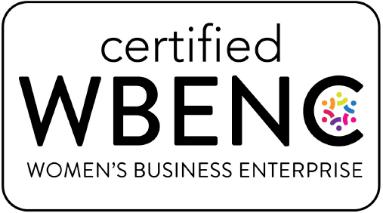Authored by:

Justin R. Muehlmeyer
Patent Attorney
All Posts by Justin
Who Owns What?
Talking to Co-Inventors about Patent Ownership
Many inventions are the result of collaboration. Collaboration creates complications where intellectual property is concerned. Specifically, collaboration often raises the question of who, or which entity, actually owns a patent for a novel product or service. This can make relationships between co-inventors complicated – if they don’t discuss with each other their own expectations about who owns the rights in the co-developed invention, the relationship can get nasty, particularly if the invention and its patent is valuable.
Each inventor is a co-owner with all the rights each other owner has.
By law, each inventor is a co-owner of all the rights in the patent – regardless of how insignificant any one inventor’s contribution may be – unless there is an agreement otherwise. An inventor is anyone who contributed to the conception of the invention as claimed in any single claim of the patent. Other parties that are involved in reduction to practice but who do not contribute to the conception of the claimed invention – such as the patent attorney who writes the patent application or lab techs who construct a working model of a product under the direction of the inventor – are not inventors and have no ownership right in the patent.
Determining what actually constitutes conception can be ambiguous. Did a lab tech make critical modifications to the invention even if he or she was not part of the original inventor team? Are the other inventors employees or contractors of a company? The answer to these questions may complicate who is an inventor and who therefore has ownership interests in the patent. Making an accurate determination of who to include as co-inventors is critical. Failing to include anyone who contributes to the conception of the invention as an inventor can pose serious problems were the patent to be litigated, at which point the validity of the patent can be challenged on grounds of incorrect inventorship.
Nor do you want to be surprised when one of your co-inventors thinks they deserve a lot more compensation than their contribution deserves. Co-inventors may not be on the same page as to their rights in the patent or what they want to do with the patent, or even if they initially are, their expectations may change over the many years of the relationship.
According to law, each co-inventor “may make, use, offer to sell, or sell the patented invention within the United States, or import the patented invention into the United States, without the consent of and without accounting to the other owners.” This has huge consequences for co-inventors: like joint tenants of a house, they each could do whatever they want with it, including sell it or license it to others. Rarely does this arrangement make business sense for technological or artistic endeavors.
The key to any successful co-inventor relationship is to discuss the relationship directly like any business relationship and formalize it before things get complicated and to avoid the possibility that anyone inventor will go rogue and do things with the patent that other co-inventors don’t agree with.
You’ve got to have an ownership agreement if all the inventors are not owners of the patent.
The inventors should discuss their ownership rights as early in the inventing relationship as possible, before misunderstandings become irreversibly complicated and before the invention becomes valuable. Inventors can agree to an ownership arrangement that is fair to everyone, for example by:
- entering into a co-development agreement in which all the co-inventors agree to their ownership rights and development obligations;
- forming a corporation that owns the patent entirely and the co-inventors are each members of the corporation with their rights and obligations set forth in an operating agreement; or
- assigning the rights from the other co-inventors to a single co-inventor.
Experienced licensing and patent attorneys can help you understand whether someone’s contribution to an invention entitles them to ownership, and if so, how to address that. Contact an attorney at Peacock Law P.C. to discuss ways to talk to co-inventors about patent ownership and how to arrange the relationship for success.


